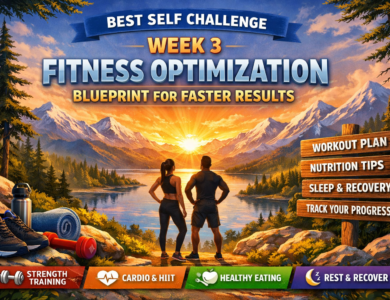
Effective Ways to Relieve Irritable Bowel Syndrome
Are you tired of living with persistent abdominal pain and discomfort? Irritable bowel syndrome (IBS) is a common condition that affects millions of people worldwide, causing significant distress and impacting daily life.
Managing digestive health is crucial for alleviating IBS symptoms. By understanding the condition and exploring various relief options, individuals can take control of their gut health and improve their overall well-being.
Key Takeaways
- Understanding IBS and its symptoms
- The importance of digestive health in managing IBS
- Exploring relief options for gut health
- Lifestyle changes to alleviate IBS symptoms
- Dietary modifications for IBS management
What is Irritable Bowel Syndrome?
IBS, or Irritable Bowel Syndrome, is a common condition characterized by a combination of abdominal pain, bloating, and changes in bowel movements. It is a chronic gastrointestinal disorder that affects the large intestine, causing discomfort and disruption in the daily lives of those affected.
Definition and Prevalence
Irritable Bowel Syndrome is a functional gastrointestinal disorder, meaning that the symptoms cannot be explained by other visible signs of disease or damage in the digestive tract. According to recent data, almost two-thirds of Americans experience gastrointestinal symptoms like heartburn, abdominal pain, bloating, diarrhea, and constipation, highlighting the prevalence of GI issues.
Types of IBS
IBS is categorized into three main types based on the predominant symptoms experienced by patients.
IBS-D (Diarrhea Predominant)
Characterized by frequent diarrhea, IBS-D is a subtype where patients experience loose, watery stools more often than normal.
IBS-C (Constipation Predominant)
In contrast, IBS-C involves persistent constipation, with patients experiencing hard or lumpy stools.
IBS-M (Mixed Type)
IBS-M is a mixed subtype where both diarrhea and constipation occur, making bowel movements unpredictable.
| IBS Type | Primary Symptoms |
|---|---|
| IBS-D | Frequent Diarrhea |
| IBS-C | Persistent Constipation |
| IBS-M | Mixed Diarrhea and Constipation |
Common Symptoms of Irritable Bowel Syndrome
IBS is associated with a range of symptoms, including abdominal pain, changes in bowel movements, and bloating. These symptoms can vary significantly among individuals, making it a complex condition to diagnose and manage.
Abdominal Pain and Cramping
One of the hallmark symptoms of IBS is abdominal pain or cramping. This discomfort can range from mild to severe and is often relieved by bowel movements. The pain is usually located in the lower abdomen.
Changes in Bowel Movements
Changes in bowel habits are another common symptom. This can manifest as diarrhea, constipation, or an alternating pattern of both. The urgency or frequency of bowel movements can also be affected.
Bloating and Gas
Bloating and gas are frequent complaints among individuals with IBS. This can lead to discomfort and visible abdominal distension.
Non-Digestive Symptoms
In addition to gastrointestinal symptoms, IBS can also cause non-digestive symptoms.
Fatigue
Many individuals with IBS experience fatigue, which can be debilitating and impact daily activities.
Anxiety and Depression
There’s a significant link between IBS and mental health issues such as anxiety and depression. The stress of dealing with IBS symptoms can exacerbate these conditions.
| Symptom | Description |
|---|---|
| Abdominal Pain | Cramping or pain in the abdomen, often relieved by bowel movements |
| Bloating and Gas | Discomfort and visible distension due to gas |
| Changes in Bowel Movements | Diarrhea, constipation, or an alternating pattern |
| Fatigue | Debilitating tiredness that impacts daily life |
| Anxiety and Depression | Mental health challenges linked to IBS |
Potential Causes and Triggers of IBS
IBS is a complex condition influenced by multiple factors, including gut health and psychological state. The interplay between these factors can lead to the development and exacerbation of IBS symptoms.
The Gut-Brain Connection
The gut and the brain are connected through the gut-brain axis, a bidirectional communication network that involves both the central nervous system and the enteric nervous system. This connection explains why stress can significantly impact digestive health, often triggering or worsening IBS symptoms. The gut-brain axis plays a crucial role in the manifestation of IBS, making stress management an essential component of treatment plans.
Food Sensitivities and Intolerances
Food sensitivities and intolerances are common triggers for IBS symptoms. Certain foods can cause inflammation or irritation in the gut, leading to abdominal pain, bloating, and changes in bowel movements. Identifying and avoiding trigger foods is a key strategy in managing IBS.
Psychological Factors
Psychological factors, including stress and anxiety, play a significant role in IBS. Stress can affect gut motility and sensitivity, while anxiety can heighten the perception of symptoms.
Stress
Stress is a well-known trigger for IBS symptoms. It can disrupt the normal functioning of the gut, leading to cramping, bloating, and alterations in bowel habits. Effective stress management techniques, such as mindfulness and meditation, can help mitigate these effects.
Anxiety
Anxiety can exacerbate IBS symptoms by increasing gut sensitivity and altering bowel habits. Managing anxiety through cognitive-behavioral therapy or relaxation techniques can be beneficial in controlling IBS symptoms.
Hormonal Influences
Hormonal fluctuations can also influence IBS symptoms. For some individuals, changes in hormone levels, such as those experienced during menstruation, can trigger or worsen symptoms. Understanding these hormonal influences can help in tailoring treatment approaches.
Dietary Approaches for Managing IBS
Managing Irritable Bowel Syndrome (IBS) often requires a multifaceted approach, with dietary changes playing a crucial role. A well-planned diet can significantly alleviate symptoms, improving the quality of life for those affected.
The Low-FODMAP Diet Explained
The low-FODMAP diet has emerged as a highly effective dietary approach for IBS management. It involves limiting certain types of carbohydrates that can be difficult for some people to digest.
Elimination Phase
During the elimination phase, high-FODMAP foods are removed from the diet for a period, typically 2-6 weeks, to assess symptom improvement.
Reintroduction Phase
The reintroduction phase systematically reintroduces FODMAP groups to identify which specific foods trigger symptoms, allowing for a personalized diet plan.
Fiber Considerations for Different IBS Types
Fiber intake is crucial for digestive health, but its impact varies among IBS types. For instance, individuals with IBS-C (Constipation-predominant IBS) may benefit from increased soluble fiber.
| IBS Type | Fiber Recommendation |
|---|---|
| IBS-C | Increase soluble fiber |
| IBS-D | Moderate total fiber intake |
| IBS-M | Adjust fiber based on predominant symptoms |
Common Trigger Foods to Avoid
Identifying and avoiding trigger foods is key to irritable bowel syndrome diet management. Common culprits include dairy products, gluten, and high-FODMAP foods.
Hydration and Its Impact on Symptoms
Adequate hydration is essential for preventing constipation and maintaining overall digestive health. It’s recommended to drink plenty of water throughout the day.

By adopting a tailored dietary approach, individuals with IBS can better manage their symptoms and improve their overall well-being.
Lifestyle Modifications for IBS Relief
Adopting certain lifestyle changes is a key component of IBS management and symptom reduction. By incorporating these modifications into daily routines, individuals can significantly alleviate their IBS symptoms and improve their overall quality of life.
Exercise Benefits for Digestive Health
Regular physical activity is known to enhance digestive health and reduce IBS symptoms. Gentle exercises, such as a 10- to 15-minute walk after meals, can stimulate digestion and provide relief.
Stress Management Techniques
Stress is a known trigger for IBS symptoms. Effective stress management techniques can help mitigate this impact.
Meditation
Meditation practices have been shown to reduce stress levels and alleviate IBS symptoms. Regular meditation can lead to a decrease in the frequency and severity of IBS flare-ups.
Deep Breathing Exercises
Deep breathing exercises are another effective method for managing stress. These exercises can help calm the digestive system and reduce IBS symptoms.
Sleep Quality Improvement Strategies
Improving sleep quality is crucial for overall health and can significantly impact IBS symptoms. Establishing a consistent sleep schedule and creating a relaxing bedtime routine can enhance sleep quality.
Mindfulness Practices for Gut Health
Mindfulness practices, including mindful eating, can improve gut health by reducing stress and enhancing digestion. Being mindful of eating habits and food choices can lead to better IBS symptom management.
| Lifestyle Modification | Benefit for IBS |
|---|---|
| Regular Exercise | Stimulates digestion, reduces symptoms |
| Stress Management | Reduces IBS flare-ups |
| Improved Sleep Quality | Enhances overall health, reduces symptoms |
| Mindfulness Practices | Improves gut health, reduces stress |
Medical Treatments for Irritable Bowel Syndrome
Effective IBS management often incorporates medical treatments tailored to the individual’s condition. While there’s no one-size-fits-all cure for Irritable Bowel Syndrome, various medical approaches can significantly alleviate its symptoms.
Over-the-Counter Options
Several over-the-counter (OTC) medications can provide relief for IBS symptoms. These include:
- Antidiarrheals like loperamide (Imodium) that help slow bowel movements and reduce diarrhea.
- Laxatives such as psyllium (Metamucil) or polyethylene glycol (MiraLAX) that can help regulate bowel movements and relieve constipation.
- Antispasmodics like dicyclomine that can help reduce abdominal cramping.
Prescription Medications
For more severe IBS symptoms, prescription medications may be necessary. These can include:
For IBS-D
- Eluxadoline (Viberzi) to reduce diarrhea.
- Rifaximin (Xifaxan) to reduce symptoms of IBS-D.
For IBS-C
- Linaclotide (Linzess) and lubiprostone (Amitiza) to help increase bowel movements.
For Pain Management
- Tricyclic antidepressants or selective serotonin reuptake inhibitors in low doses to help manage chronic abdominal pain.
Emerging Treatments and Research
The landscape of IBS treatment is continually evolving, with research into new medications and therapies. There’s also a growing interest in natural remedies and alternative treatments, reflecting a holistic approach to managing IBS.

Alternative and Complementary Therapies
Alternative and complementary therapies are gaining recognition for their potential to alleviate IBS symptoms and improve quality of life. These therapies can be used alongside conventional treatments to provide a more holistic approach to managing Irritable Bowel Syndrome.
Probiotics and Gut Microbiome Health
Probiotics are live microorganisms that confer health benefits when administered in adequate amounts. They play a crucial role in maintaining gut microbiome health, which is often disrupted in individuals with IBS. Research suggests that certain probiotic strains can help alleviate symptoms such as bloating, abdominal pain, and changes in bowel movements.
Herbal Remedies with Scientific Support
Several herbal remedies have shown promise in managing IBS symptoms. These include:
- Peppermint Oil: Known for its antispasmodic properties, peppermint oil can help reduce abdominal pain and cramping associated with IBS.
- Ginger: Ginger has anti-inflammatory properties and can aid in digestion, potentially reducing nausea and discomfort.
- Turmeric: Curcumin, a compound in turmeric, has potent anti-inflammatory and antioxidant properties that may help alleviate IBS symptoms.
“The use of peppermint oil in IBS patients has been shown to significantly reduce symptoms of diarrhea and abdominal cramping,” notes a study published in a reputable gastroenterology journal.
Mind-Body Approaches
Mind-body therapies can help manage the psychological aspects of IBS, which are closely linked to its physical symptoms.
- Hypnotherapy: Gut-directed hypnotherapy has been shown to reduce IBS symptoms by influencing the gut-brain axis.
- Cognitive Behavioral Therapy (CBT): CBT can help individuals manage stress and anxiety related to IBS, potentially reducing symptom severity.
Acupuncture and Traditional Chinese Medicine
Acupuncture, a key component of Traditional Chinese Medicine, involves inserting thin needles into specific points on the body. Some studies suggest that acupuncture can help reduce IBS symptoms, although more research is needed to fully understand its effects.
| Therapy | Potential Benefits |
|---|---|
| Probiotics | Alleviates bloating, abdominal pain, and bowel movement changes |
| Peppermint Oil | Reduces abdominal pain and cramping |
| Ginger | Aids digestion, reduces nausea |
| Turmeric | Anti-inflammatory and antioxidant effects |
| Hypnotherapy | Influences gut-brain axis, reduces symptoms |
| CBT | Manages stress and anxiety related to IBS |
| Acupuncture | May reduce IBS symptoms |
Managing IBS Flare-Ups Effectively
IBS flare-ups can be challenging, but identifying early warning signs is key to effective management. Being aware of the symptoms that precede a flare-up allows individuals to take proactive steps to mitigate its impact.
Identifying Early Warning Signs
Recognizing the early signs of an IBS flare-up is crucial. These may include increased abdominal pain, changes in bowel movements, or heightened bloating. Keeping a symptom diary can help identify patterns and triggers.
Quick Relief Strategies
Several strategies can provide quick relief during an IBS flare-up. These include:
- Heat Therapy: Applying heat to the abdomen can help relax the muscles and reduce pain.
- Gentle Movement: Gentle exercises, such as yoga or short walks, can help stimulate bowel movements and relieve stress.
- Dietary Adjustments: Avoiding trigger foods and following a bland diet during flare-ups can help manage symptoms.
Heat Therapy
Using a heating pad or warm bath can be particularly effective in relaxing the abdominal muscles and reducing cramping.
Gentle Movement
Gentle exercises can help stimulate digestion and relieve stress, which is often a contributing factor to IBS flare-ups.
Dietary Adjustments
Adjusting diet during flare-ups involves avoiding common trigger foods and opting for easily digestible foods.
Creating an Emergency Kit
Preparing an emergency kit with essentials like heating pads, comfortable clothing, and a list of safe foods can be very helpful.
Recovery Protocols After Flare-Ups
After a flare-up, gradually reintroducing foods and resuming normal activities can help in recovery. “Planning plenty of time for meals and avoiding distractions while eating” can also aid in managing IBS symptoms, as advised by healthcare professionals.
Living with Irritable Bowel Syndrome: Long-Term Strategies
Effective long-term management of IBS involves understanding the condition, identifying personal triggers, and implementing a tailored treatment plan. This comprehensive approach enables individuals to better manage their symptoms and improve their quality of life.
Developing a Personalized Treatment Plan
Creating a personalized treatment plan is crucial for managing IBS effectively. This involves working closely with healthcare providers to identify the most suitable treatments based on the individual’s specific symptoms and needs.
Symptom and Trigger Tracking Methods
Tracking symptoms and triggers is essential for understanding and managing IBS. Various methods can be employed, including:
- Food Diaries: Recording food intake and any subsequent symptoms to identify trigger foods.
- Symptom Journals: Documenting the severity and frequency of symptoms to track patterns.
- Digital Apps for IBS Management: Utilizing apps designed to track symptoms, triggers, and treatment efficacy.
Effective Communication with Healthcare Providers
Maintaining open and effective communication with healthcare providers is vital for adjusting treatment plans and ensuring optimal care.
Support Groups and Community Resources
Engaging with support groups and community resources can provide emotional support, practical advice, and a sense of community for individuals living with IBS.
When to Seek Medical Help
While IBS is a chronic condition, certain symptoms warrant immediate medical evaluation. It’s essential to distinguish between manageable IBS symptoms and those that require professional medical attention.
Warning Signs and Red Flags
Certain symptoms can indicate a more serious condition. These include severe abdominal pain, rectal bleeding, unexplained weight loss, and a significant change in bowel habits. If you experience any of these symptoms, it’s crucial to seek medical help promptly.
Diagnostic Procedures and Tests
To accurately diagnose IBS or rule out other conditions, healthcare providers may use various diagnostic tools. These can include:
- Detailed medical history and symptom assessment
- Physical examination
- Specific tests to rule out other conditions
Colonoscopy
A colonoscopy allows for the visual examination of the colon and rectum, helping to identify or rule out conditions like inflammatory bowel disease (IBD) or colorectal cancer.
Blood Tests
Blood tests can help identify signs of inflammation, infection, or other conditions that may be causing symptoms.
Stool Tests
Stool tests can detect the presence of blood, infections, or inflammation in the gastrointestinal tract.
| Diagnostic Test | Purpose |
|---|---|
| Colonoscopy | Visual examination of the colon and rectum |
| Blood Tests | Identify signs of inflammation or infection |
| Stool Tests | Detect blood, infections, or inflammation |
Finding the Right Gastroenterology Specialist
For accurate diagnosis and effective management of IBS, finding the right gastroenterology specialist is crucial. Look for a doctor with experience in treating IBS and a patient-centered approach.
Conclusion
Effectively managing irritable bowel syndrome (IBS) requires a multifaceted approach that incorporates dietary changes, lifestyle modifications, and medical treatments. By understanding the complexities of IBS and its impact on digestive health and gut health, individuals can develop personalized strategies to alleviate symptoms and improve their quality of life.
A comprehensive management plan involves identifying and avoiding trigger foods, practicing stress management techniques, and staying hydrated. Additionally, incorporating probiotics and other gut-friendly supplements can help maintain a healthy gut microbiome. For some individuals, medical treatments such as prescription medications or alternative therapies like acupuncture may be necessary to manage symptoms.
By adopting a holistic approach to IBS management, individuals can reduce the frequency and severity of symptoms, improving overall digestive health and well-being. It’s essential to work closely with healthcare providers to develop a tailored plan that addresses specific needs and promotes optimal gut health.
FAQ
What is Irritable Bowel Syndrome (IBS)?
Irritable Bowel Syndrome (IBS) is a gastrointestinal disorder characterized by recurring abdominal pain, changes in bowel movements, and other symptoms that affect digestive health.
What are the different types of IBS?
The main types of IBS are IBS-D (diarrhea-predominant), IBS-C (constipation-predominant), and IBS-M (mixed bowel habits), each affecting bowel movements and overall digestive health differently.
What are the common symptoms of IBS?
Common symptoms of IBS include abdominal pain, changes in bowel movements, bloating, gas, and non-digestive symptoms like fatigue and anxiety, which can vary among individuals and impact daily life.
What causes IBS?
The exact cause of IBS is unknown, but factors such as the gut-brain connection, food sensitivities, psychological factors like stress and anxiety, and hormonal influences can contribute to its development and exacerbation.
How can I manage IBS symptoms through diet?
Managing IBS symptoms through diet involves following a low-FODMAP diet, considering fiber intake based on IBS type, avoiding common trigger foods, and staying hydrated to alleviate symptoms.
What lifestyle modifications can help alleviate IBS symptoms?
Lifestyle modifications such as regular exercise, stress management techniques like meditation and deep breathing, improving sleep quality, and practicing mindfulness can help alleviate IBS symptoms.
What medical treatments are available for IBS?
Medical treatments for IBS include over-the-counter options like antidiarrheals, laxatives, and antispasmodics, as well as prescription medications tailored to specific IBS types and symptoms, along with emerging treatments.
Are there alternative therapies for IBS?
Alternative therapies for IBS include probiotics for gut microbiome health, herbal remedies like peppermint oil, ginger, and turmeric, mind-body approaches such as hypnotherapy and cognitive behavioral therapy, and acupuncture along with traditional Chinese medicine.
How can I manage IBS flare-ups?
Managing IBS flare-ups involves identifying early warning signs, employing quick relief strategies like heat therapy and dietary adjustments, creating an emergency kit, and following recovery protocols after flare-ups.
When should I seek medical help for IBS?
You should seek medical help for IBS if you experience warning signs and red flags, and your healthcare provider may use diagnostic procedures and tests to determine the best course of treatment.
How can I track my IBS symptoms and triggers?
Tracking IBS symptoms and triggers can be done through methods like food diaries and digital apps, which help in developing a personalized treatment plan and improving communication with healthcare providers.
Are there support groups for people with IBS?
Yes, there are support groups and community resources available for people with IBS, providing a platform for sharing experiences and gaining support from others who understand the condition.



